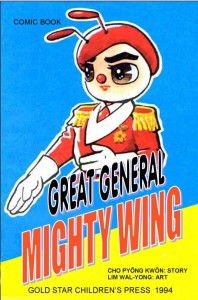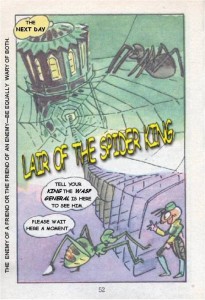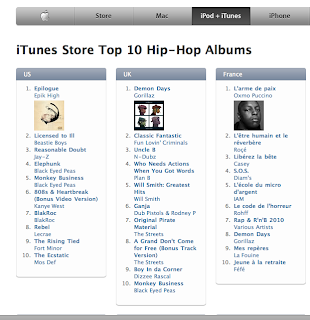In POP GOES KOREA, I have a chapter about the history of Korean comic books, but sadly I never had the chance to get much into North Korean comics. Fortunately, Geoffrey Cain over at Global Post new has a good article on comic books in North Korea (thanks to Gusts of Popular Feeling for the find).
The books are also designed to instill the father of North Korea, Kim Il-sung’s, philosophy of Juche — radical self-reliance of the state, added Nick Bonner, founder of Koryo Tours, an English-language tour company in Beijing that takes visitors to North Korea several times each year.
“They’re much like the themes I read when I was a kid, on the British Army fighting the ‘Nazis and Japs,’” Bonner reflected, pointing out that some propaganda plots nonetheless resemble our own. “But [in North Korea] their themes are either historic or based on the Anti-Japanese Guerilla War, or the Victorious Fatherland Liberation War [the North Korean name for the Korean War in 1950-53].”
Personally, I find the animal comics of North Korea like The Great General Mighty Wing most interesting, especially in light of such Western comics as Maus. Mighty Wing features bees, wasps, spiders and other creatures, in a tale that was designed to promote national unity following the death of Kim Il Sung in 1994.


The spider stuff in Mighty Wing I found especially fascintating because South Korea used similar imagery in some of its anti-North propaganda over the years — such as in the anti-communist animation that opened the old South Korean animated film General Ttoli.







